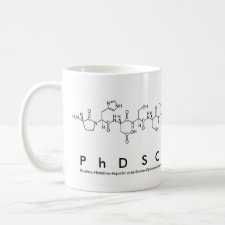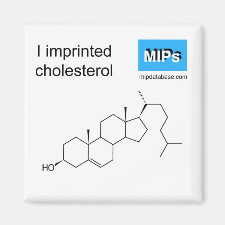
Authors: Zhang SZ, Fu XJ, Wang H, Yang YJ
Article Title: Cholesterol Imprinted Polymerized Organogel Formed by Polymerizable Gelator and Adsorption Ability.
Publication date: 2009
Journal: Acta Polymerica Sinica
Issue: (3)
Page numbers: 244-248.
Alternative URL: http://www.gfzxb.org/EN/abstract/abstract8911.shtml
Abstract: A novel cholesterol molecularly-imprinted polymerized organogel was prepared in present work. N-octadecyl maleamic acid (ODMA) as polymerizable gelator can self-assemble in polymerizable solvent mixture of beta-hydroxyethyl methacrylate, methylacrylic acid and polyethylene glycol dimethacrylates-200 in the presence of 3-cholesteryloxycarbonylbonylpropanoic acid (COPA) as template, and ultimately turn them into organogels. The resultant organogels were subsequently polymerized by in situ UV irradiation. The molecularly-imprinting polymerized organogels were obtained after removal of the template through ethanol extracting. The images of polarized optical microscopy and field emission scanning electric microscopy of organogels indicated a number of branch-like crystaillites which consisted of ODMA aggregates formed, which played an important role for the formation of stable imprinting cavities. The imprinted polymerized organogels exhibited higher adsorption efficiency (64%) for cholesterol. It was found that the adsorption capacity of the imprinted polymerized organogels depended on the contents of ODMA and COPA. For instance, the adsorption capacity increased from 15.7 mg/g to 22.9 mg/g with an increase of ODMA content from 1 wt% to 3 wt% in the matrix and increased from 16.8 mg/g to 22.2 mg/g with an increase of COPA content from 4 wt% to 7 wt%, respectively. However, the adsorption capacity decreased with further increase of ODMA and COPA contents mainly due to the high density of polymer network and interfering to the self-assembly of ODMA
Template and target information: cholesterol
Author keywords: Polymerizable gelator, Imprinted polymerized organogels, Adsorption of cholesterol



Join the Society for Molecular Imprinting

New items RSS feed
Sign-up for e-mail updates:
Choose between receiving an occasional newsletter or more frequent e-mail alerts.
Click here to go to the sign-up page.
Is your name elemental or peptidic? Enter your name and find out by clicking either of the buttons below!
Other products you may like:
 MIPdatabase
MIPdatabase









